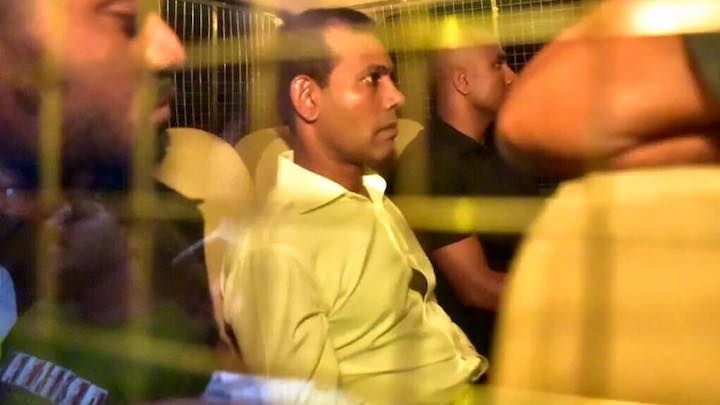Nasheed announces return to Maldives ‘come what may’
The exiled opposition leader ruled out a deal with “the now defunct Maldives Supreme Court.”

04 Oct 2018, 09:00
Exiled former president Mohamed Nasheed on Wednesday declared his intention to return to the Maldives, despite a 13-year jail sentence on a controversial terrorism conviction.
The “fugitive” opposition leader, who secured political asylum in the UK after he was granted medical leave from prison, appeared to rule out a deal for his release that would keep the present Supreme Court bench in place.
“If we at this juncture try to find an amicable arrangement for my freedom with the now defunct Maldives Supreme Court, it will not further our ambitions for judicial reform in the Maldives,” he tweeted.
“I will go to the Maldives on 01 November, come what may.”
Become a member
Get full access to our archive and personalise your experience.
Already a member?
Discussion
No comments yet. Be the first to share your thoughts!
No comments yet. Be the first to join the conversation!
Join the Conversation
Sign in to share your thoughts under an alias and take part in the discussion. Independent journalism thrives on open, respectful debate — your voice matters.




